The new Ford Capri wants to tap a vein of Gen X nostalgia. Does it succeed?
We ask if the all-electric Ford Capri can capture the swagger of its much-loved but rather oafish predecessor
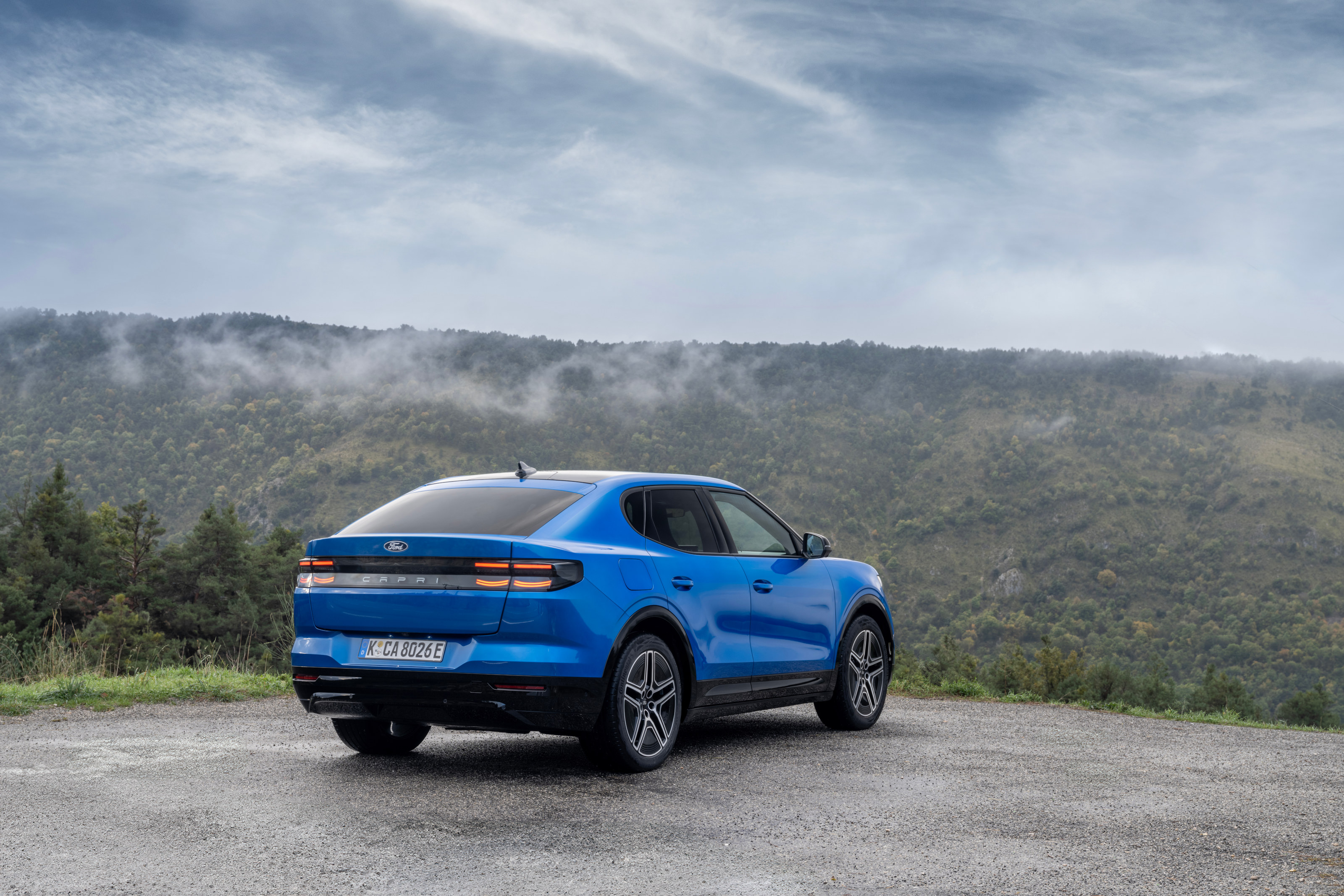
The long-nosed, two-door fastback coupé Ford Capri (1969-1986) had a swagger that marketing budgets could not buy. Popstars chose to pose inside the car on their album covers, including reggae superhero Gregory Isaacs on his 1974 debut LP In Person, while TV stars enhanced their characters’ secret-agent status by driving them, namely Bodie & Doyle in the British crime-busting drama series The Professionals (1977-1983). The old Capri had an affordable cachet – as Ford’s European answer to its US Mustang muscle car – and held great appeal among a certain mainstream male customer base, if not always mega sales success, across three decades.
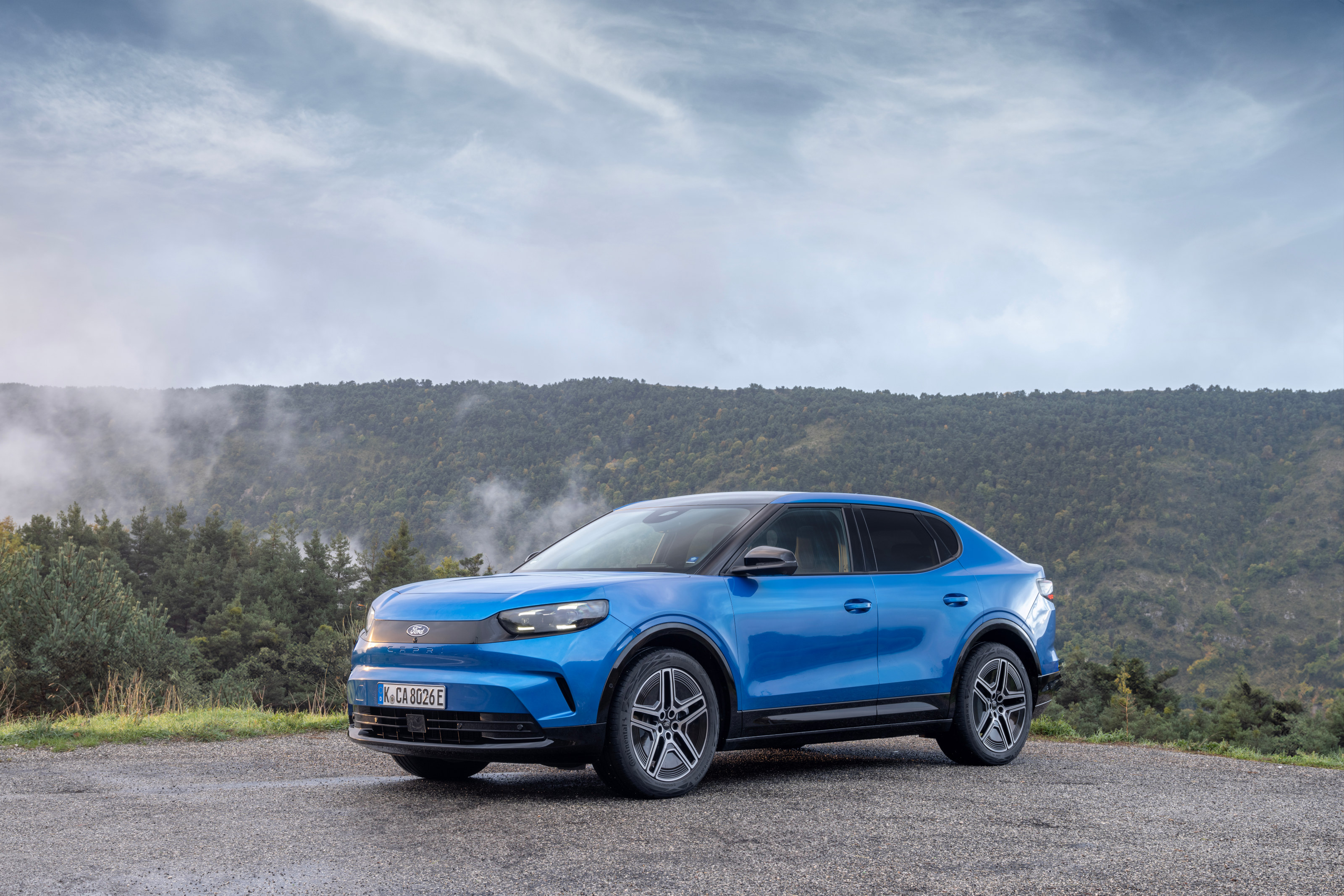
The new all-electric Ford Capri
But those decades are long gone. So why resurrect the Capri name now? Ford has been leaning into a few of its iconic nameplates of late, likening them to Marvel superheroes with superpowers. Familiarity can be good when faced with competition from so many, often anonymous, new 21st-century electric start-up brands aiming to take on the famous American marque that revolutionised mass-production in the early 20th century. And besides, new names cost a fortune to register and market.
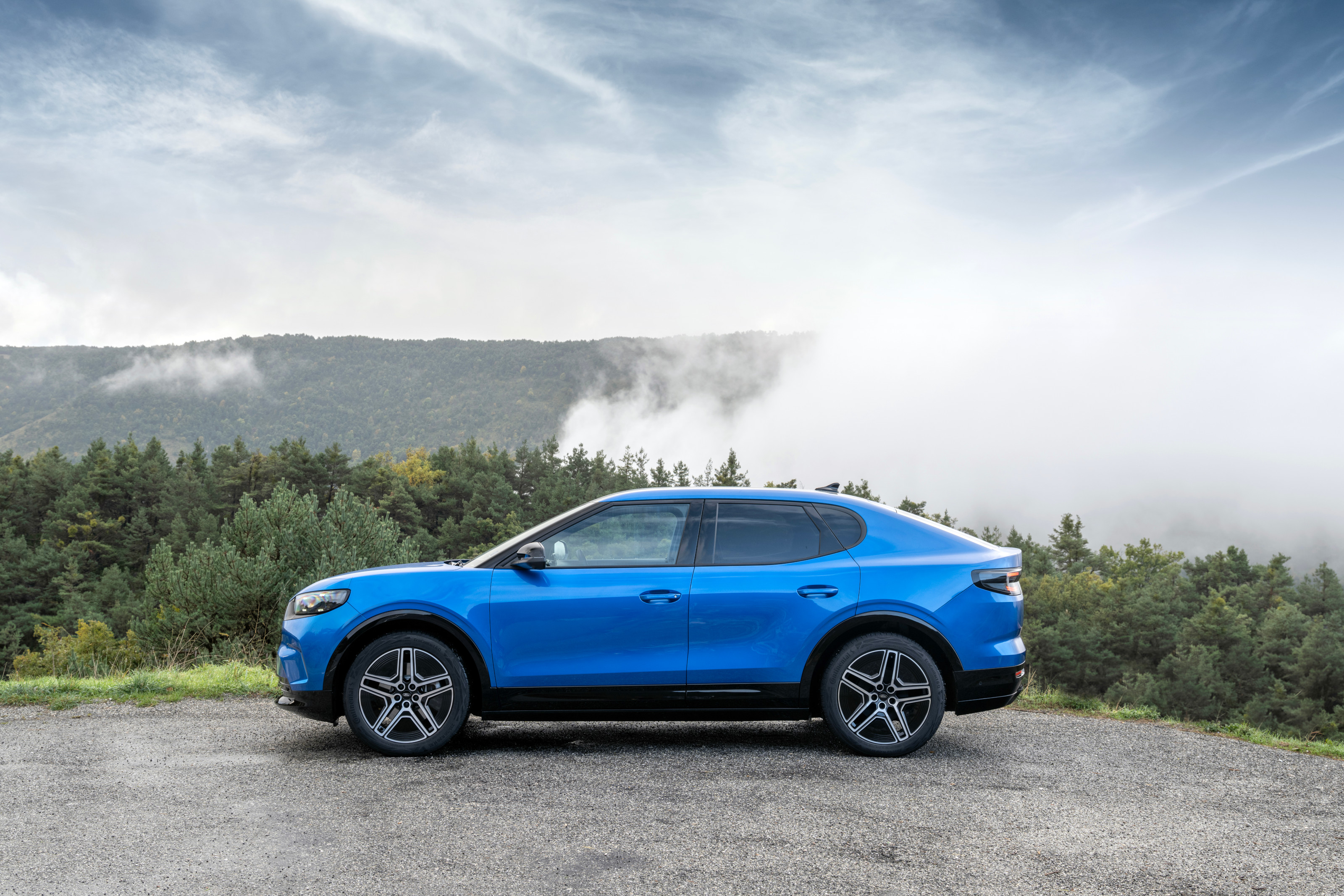
The new Capri is a four door electric 'coupé'
The strategy has worked well with the Ford Bronco, which also had a long gap in its production history before being resurrected in 2020. The current version is still available as a three-door petrol model, still looks boxy and still looks like a practical and authentic 4x4, because it is. The new model has a clear link to Broncos of old, stands out well on the road and is selling well.
The new electric Ford Capri
By comparison, the new all-electric 2024 Capri has no need for a long bonnet to house a combustion engine. And as a high-sided five-door crossover, it does not have enough visual, or even proportional resonance with the low-slung two-door fastback Capri models that preceded it to share the name in any meaningful way.

The original 1969 Ford Capri was UK's answer to the American muscle car
Looking beyond the name’s authenticity or otherwise, the new Capri is nonetheless well-designed and built. Panel gaps are tight and minimal and the surfacing smooth, logical and restrained, especially apparent around the front end. Inside, the cabin shares the clean aesthetic of the new electric European Explorer, bar the daft addition of a metal steering wheel spoke at six o’clock with drilled-out holes that – while harking back to similar detailing on certain Capris of old – sits uneasily within this otherwise modern Ford interior.
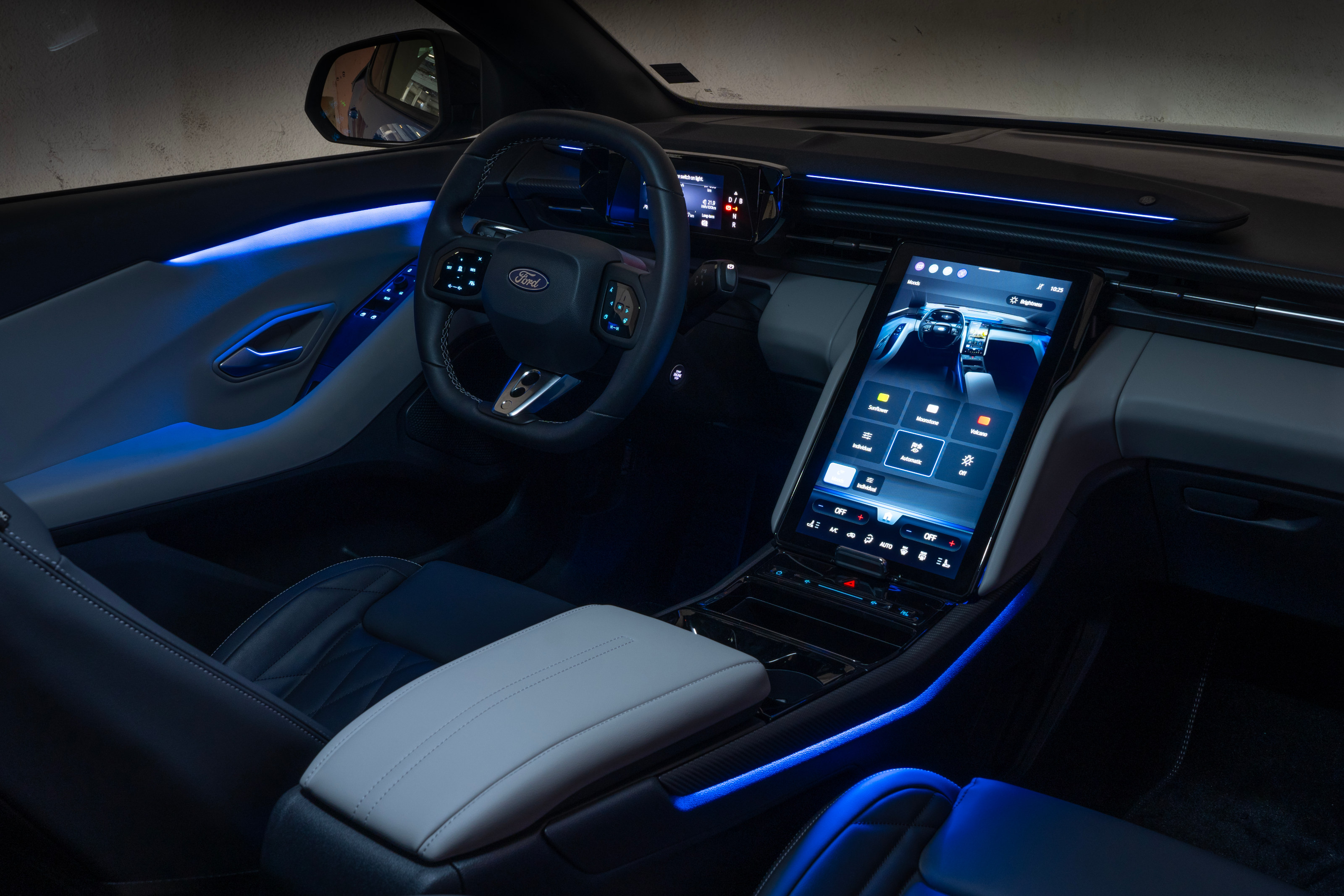
Ford Capri dashboard
The new electric Capri also features the Explorer’s secret locker space behind the large and slidable portrait-shaped centre touchscreen, which is a good thing. Passenger space front and back is genuinely good and with a min/max boot space of 572 to 1,505 litres, the Capri is practical too. The interior mood is enhanced by the optional panoramic glass roof, ambient lighting and a stylish floating B&O sound bar on Premium models, but in general, the new Capri could do with some more surprise and delight materials. Maybe a rumoured sportier ST version will rectify that.
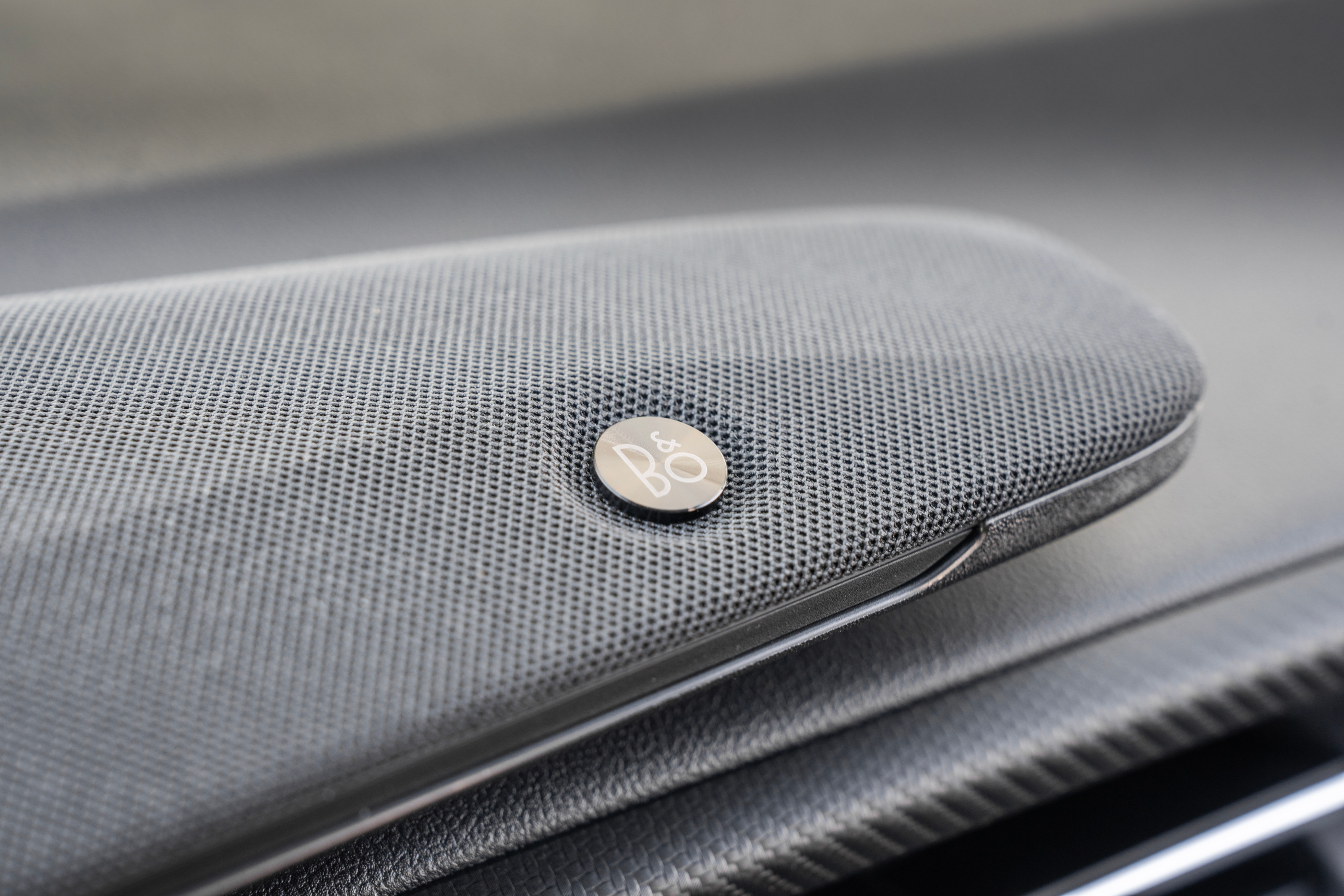
A Bang & Olufsen 'sound bar' graces the dash of the Premium models
What’s it like to drive?
To drive, the new Capri is competent only. In either rear-wheel drive (RWD) or all-wheel drive (AWD) mode, the driving experience does not feel connected enough to the car. On twisty roads, this higher-sided vehicle does not feel fully at ease, and with only a single-speed automatic transmission and no paddle-style regenerative braking options, can feel like it’s running away with itself.
Wallpaper* Newsletter
Receive our daily digest of inspiration, escapism and design stories from around the world direct to your inbox.
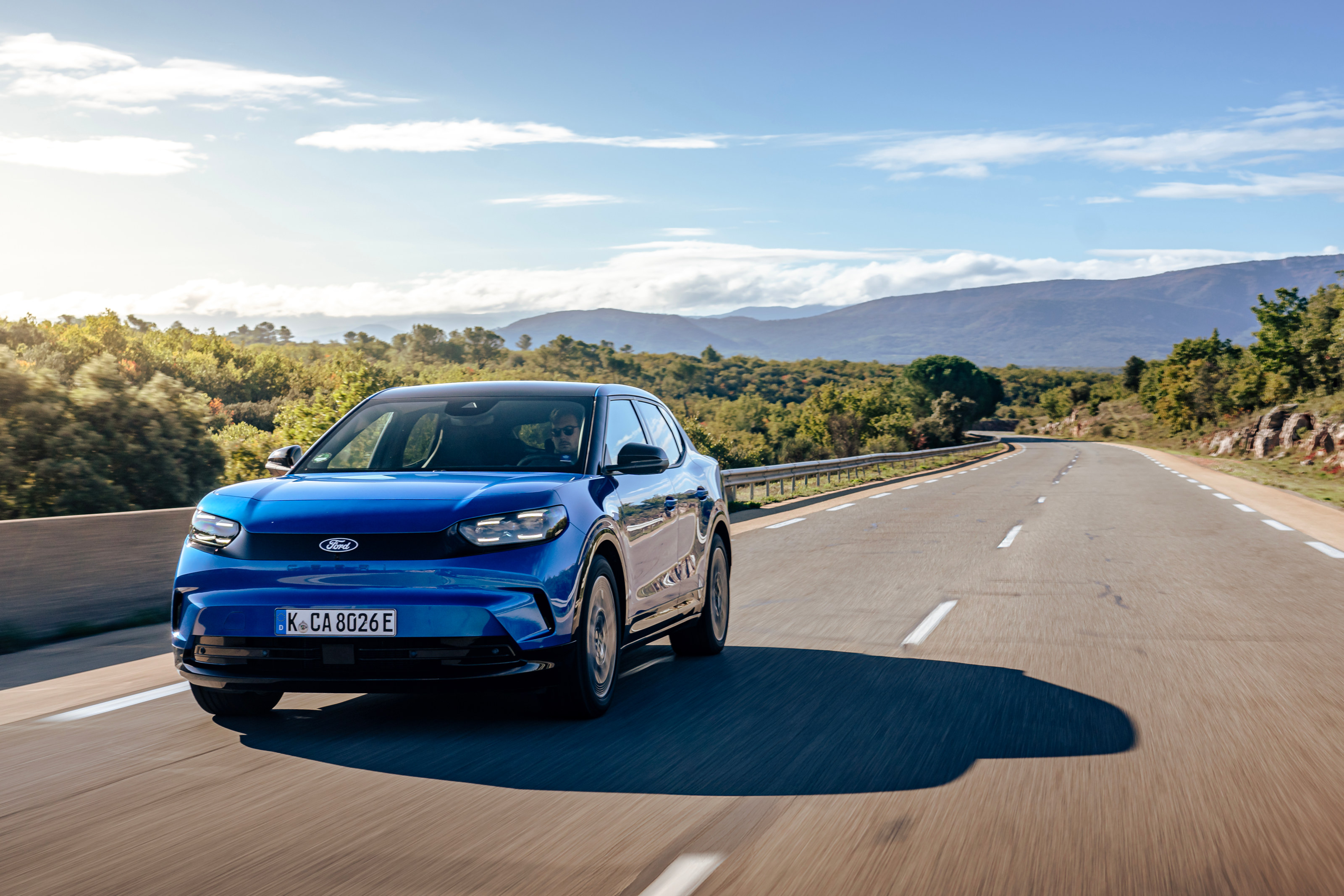
Ford Capri
The one regen option – from a twist of the steering column-mounted gear selector to the ‘B’ setting – helps a bit by ‘holding’ the car after bursts of acceleration, and in ‘Sport mode’ the throttle response is sharpened and steering feedback better. But not much. Which is a shame, as in recent history Ford has been known as a maker of great-driving cars. Maybe choosing to borrow VW’s electric platform for the Capri’s underpinnings provided too many constraints on what handling changes could be made, although Ford engineers did stress that ride quality for long trips – especially for those in the back – had been really focused on.
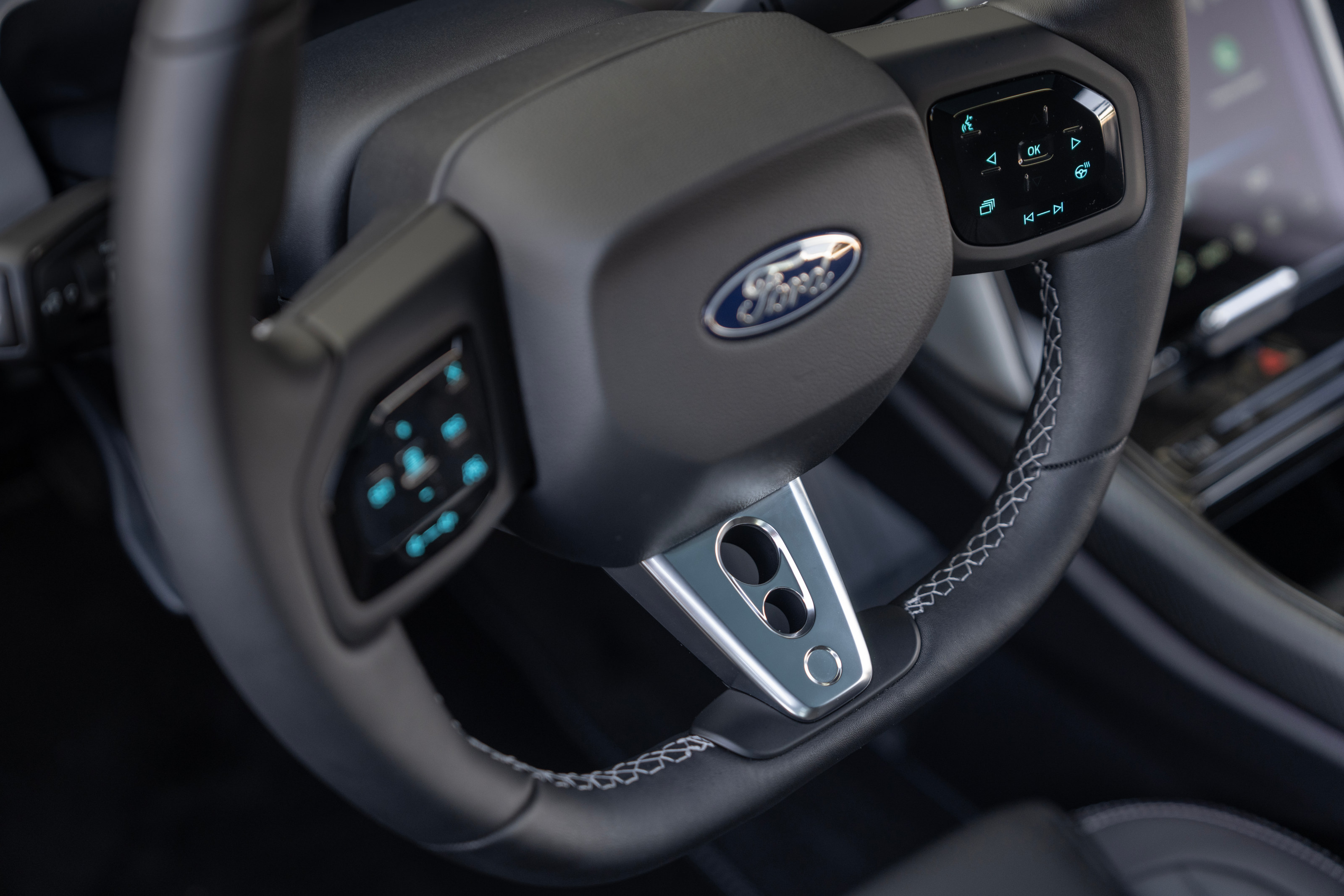
Spot the stray spoke: inside the new Ford Capri
All of which suggests the new five-door Capri – available to order with 170hp, 286hp and 340hp power outputs, RWD and AWD and 242-389 miles of electric range – is aimed more at families than the old two-door coupé ever was. For that new market – who may or may not remember the old Capri at all – the new practical crossover could suit their lives perfectly well. But it’s not really a Capri anymore, in shape or spirit.
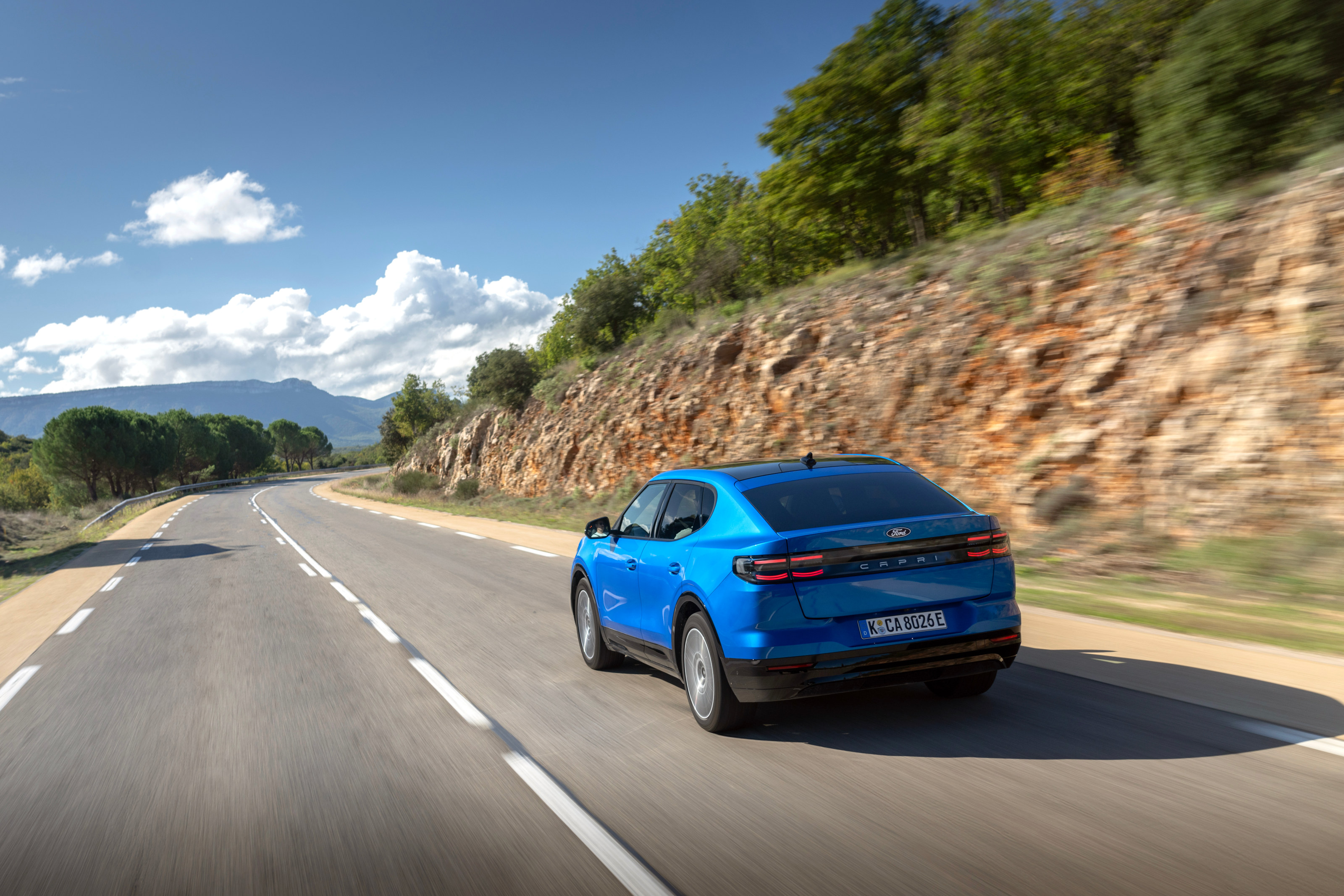
The new all-electric Ford Capri
Ford Capri, from £42,075, Ford.co.uk, @FordUK
Guy Bird is a London-based writer, editor and consultant specialising in cars and car design, but also covers aviation, architecture, street art, sneakers and music. His journalistic experience spans more than 25 years in the UK and global industry. See more at www.guybird.com
-
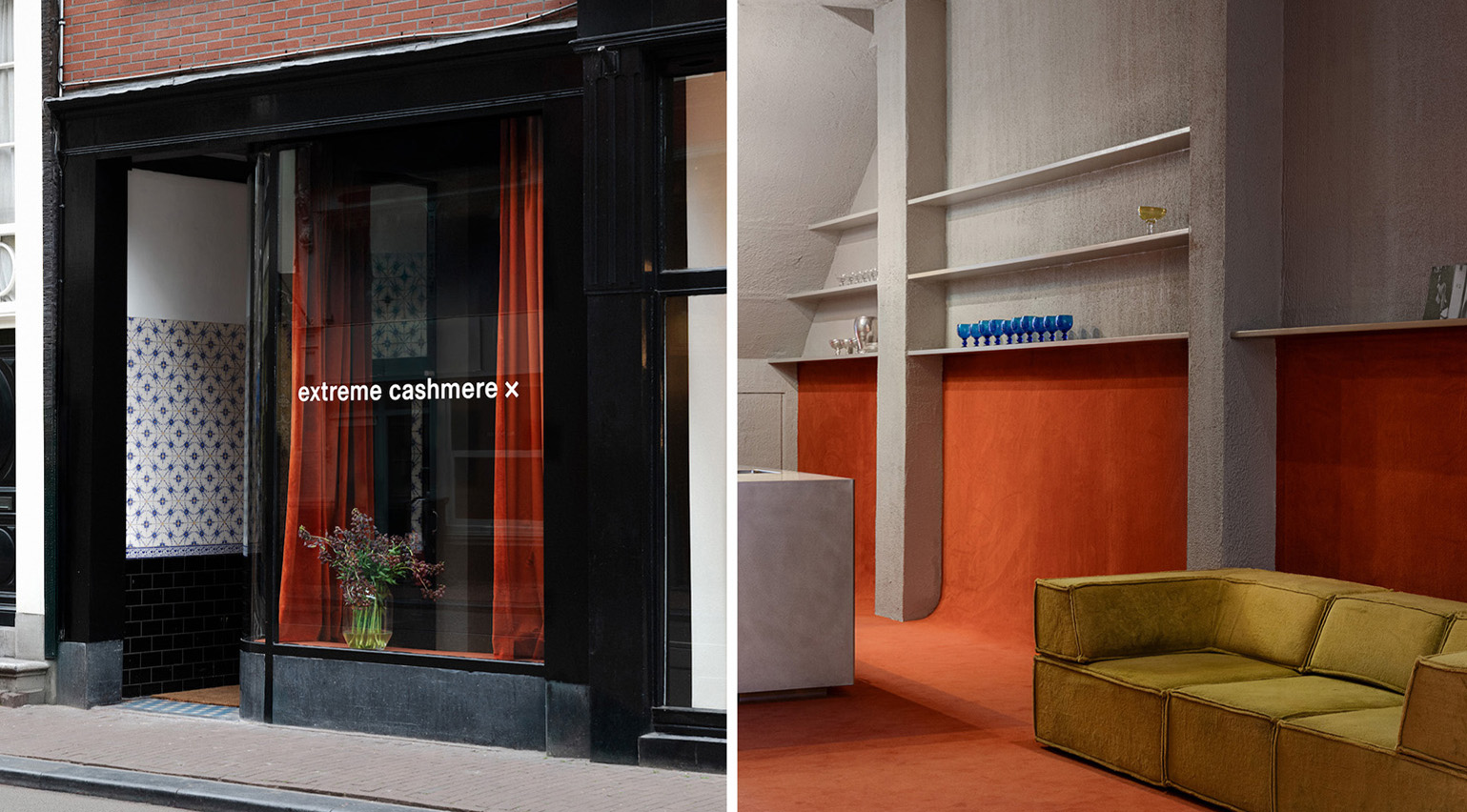 Extreme Cashmere reimagines retail with its new Amsterdam store: ‘You want to take your shoes off and stay’
Extreme Cashmere reimagines retail with its new Amsterdam store: ‘You want to take your shoes off and stay’Wallpaper* takes a tour of Extreme Cashmere’s new Amsterdam store, a space which reflects the label’s famed hospitality and unconventional approach to knitwear
By Jack Moss
-
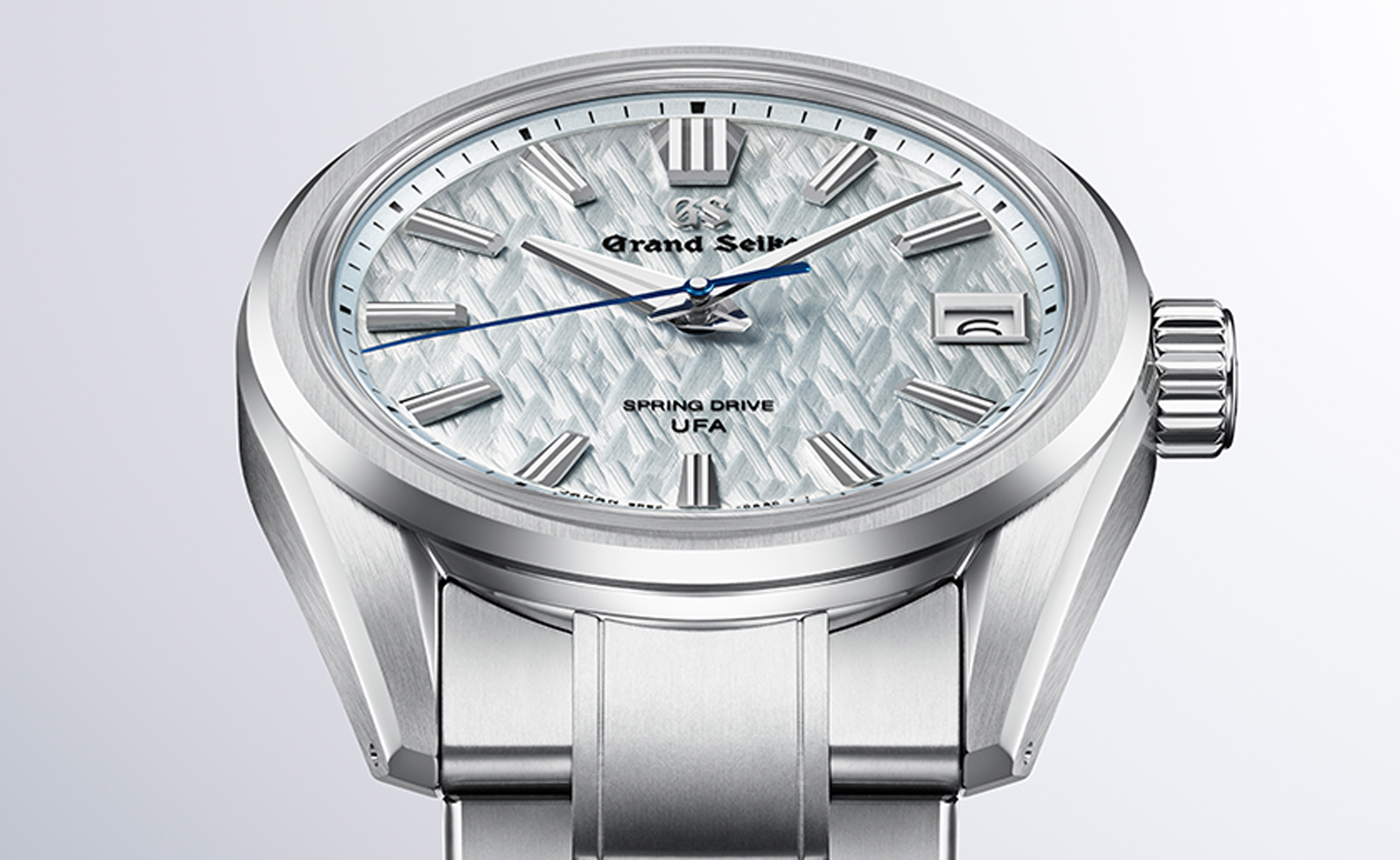 Titanium watches are strong, light and enduring: here are some of the best
Titanium watches are strong, light and enduring: here are some of the bestBrands including Bremont, Christopher Ward and Grand Seiko are exploring the possibilities of titanium watches
By Chris Hall
-
 Warp Records announces its first event in over a decade at the Barbican
Warp Records announces its first event in over a decade at the Barbican‘A Warp Happening,' landing 14 June, is guaranteed to be an epic day out
By Tianna Williams
-
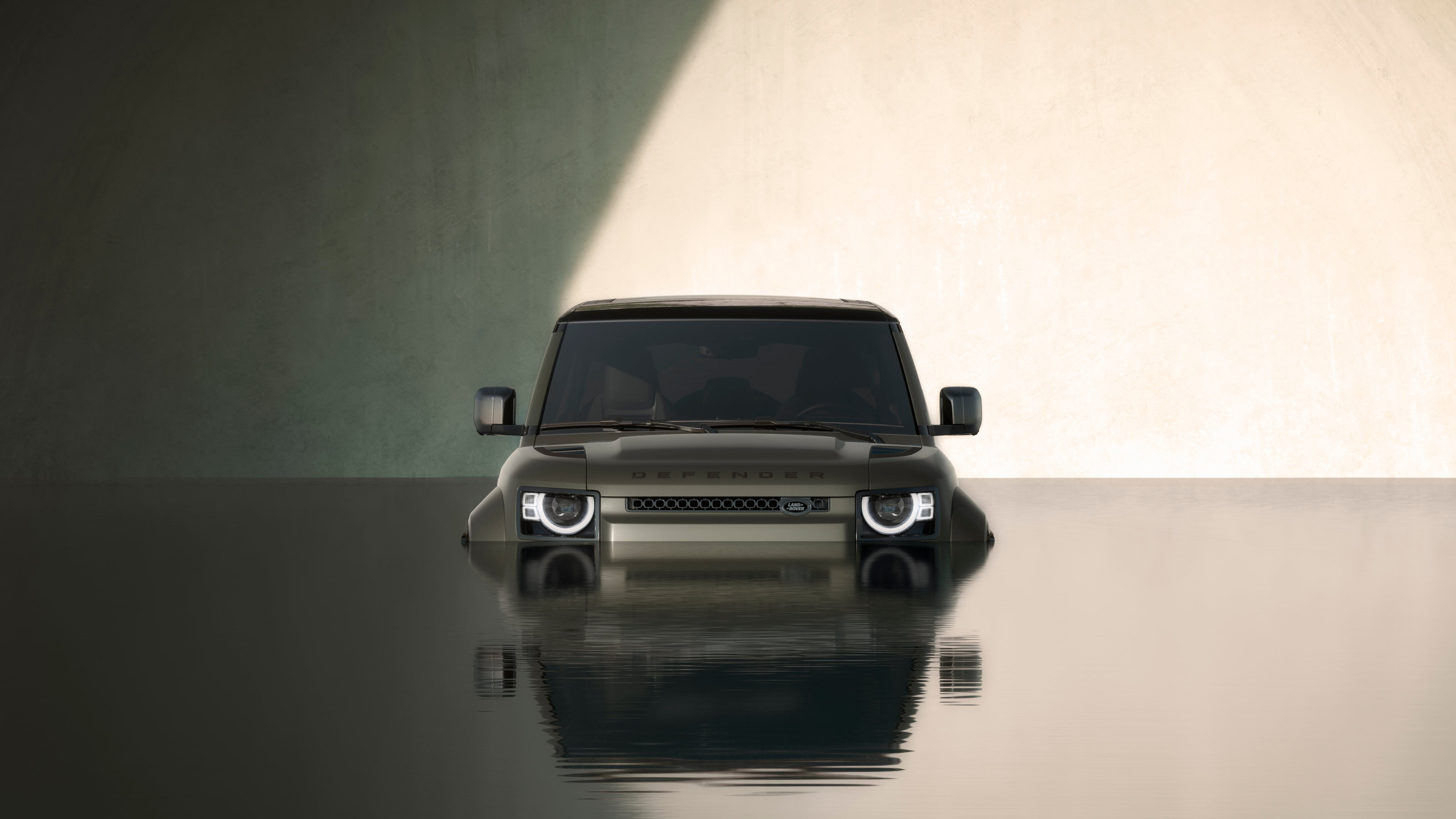 The 2024 Goodwood Festival of Speed hosted a wealth of auto innovation, from hypercars to hot hatches
The 2024 Goodwood Festival of Speed hosted a wealth of auto innovation, from hypercars to hot hatchesThe best new SUVs, EVs, hatchbacks and supercars to emerge from the 2024 Goodwood Festival of Speed
By Jonathan Bell
-
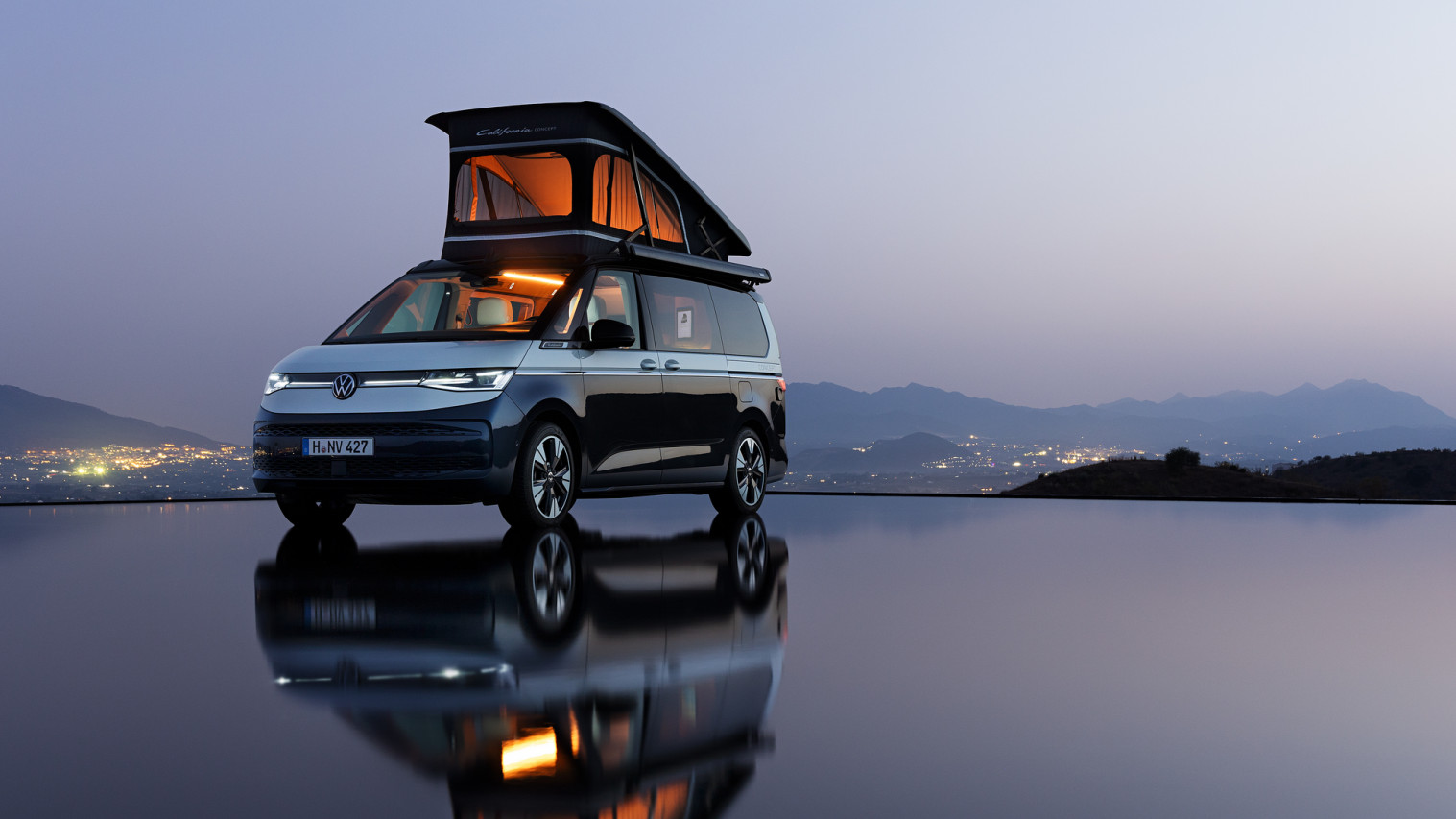 Four new compact camper vans showcase the best in modest mobile home design
Four new compact camper vans showcase the best in modest mobile home designVolkswagen, Citroën, Ford and Mercedes-Benz showcase their latest takes on contemporary van living
By Jonathan Bell
-
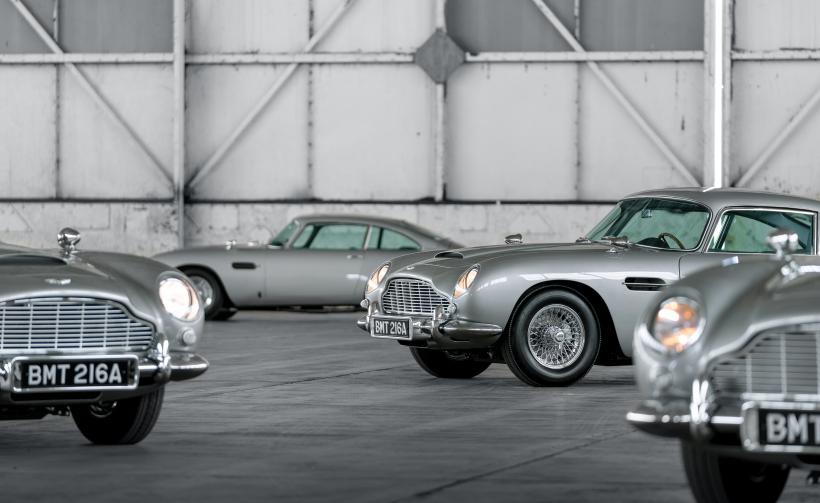 Classic car revivals: everything old is new again
Classic car revivals: everything old is new againHere, we round up a few firms who are committed to dishing up revived classics from their past
By Jonathan Bell
-
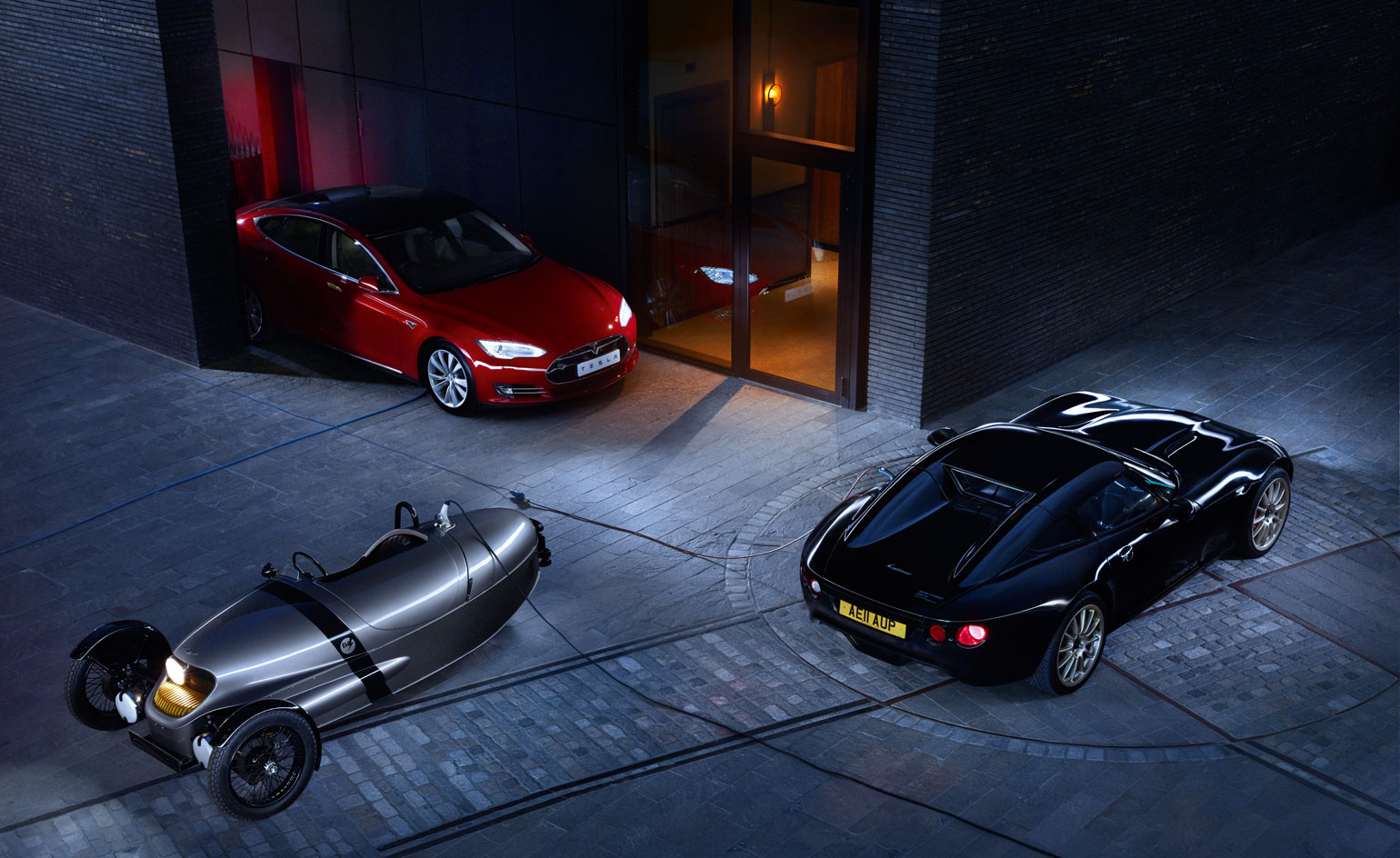 Power play: bringing the electric car into the mainstream
Power play: bringing the electric car into the mainstreamBy Jonathan Bell
-
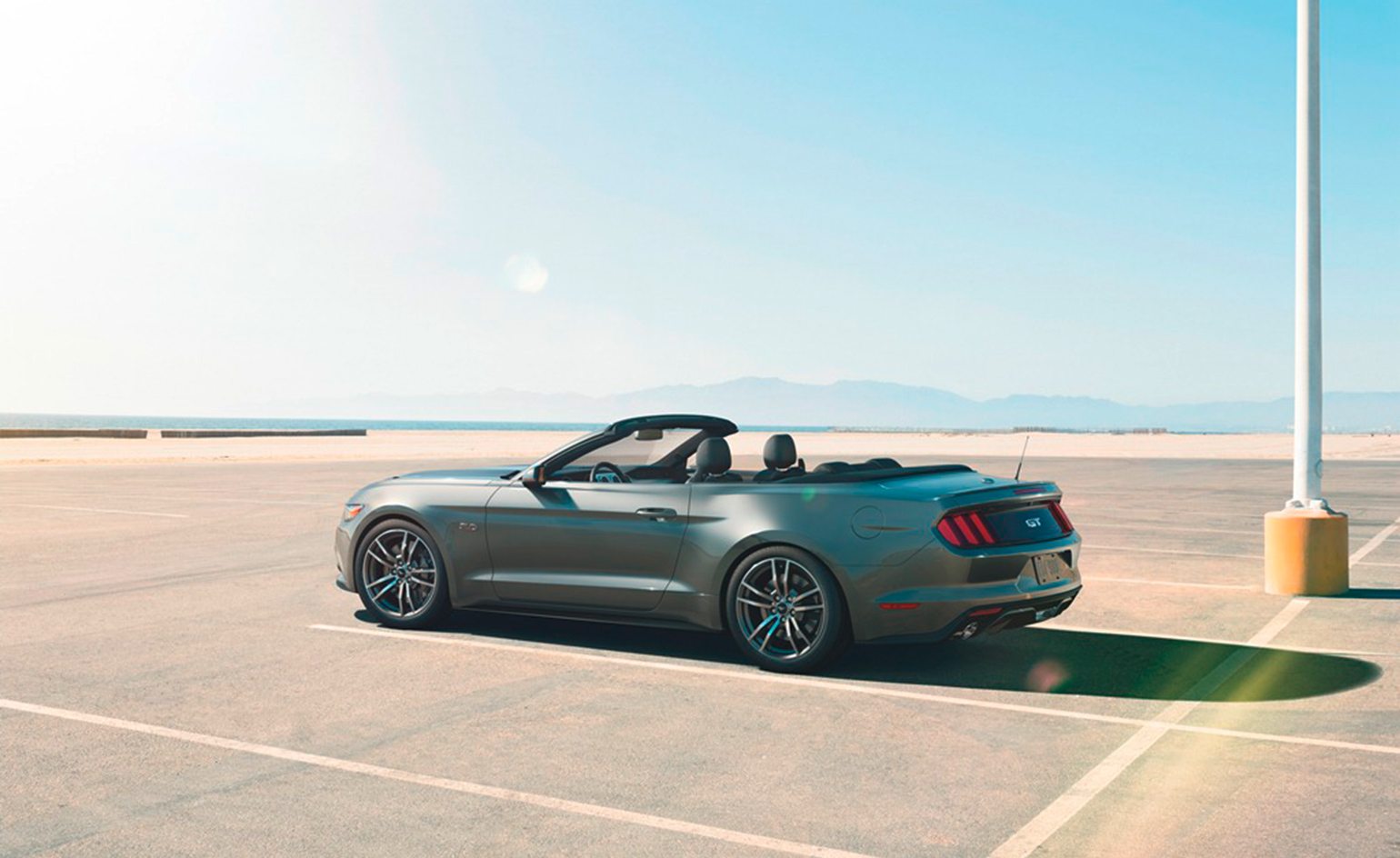 Brawn with brains: the new Ford Mustang Convertible goes global
Brawn with brains: the new Ford Mustang Convertible goes globalBy Jonathan Bell
-
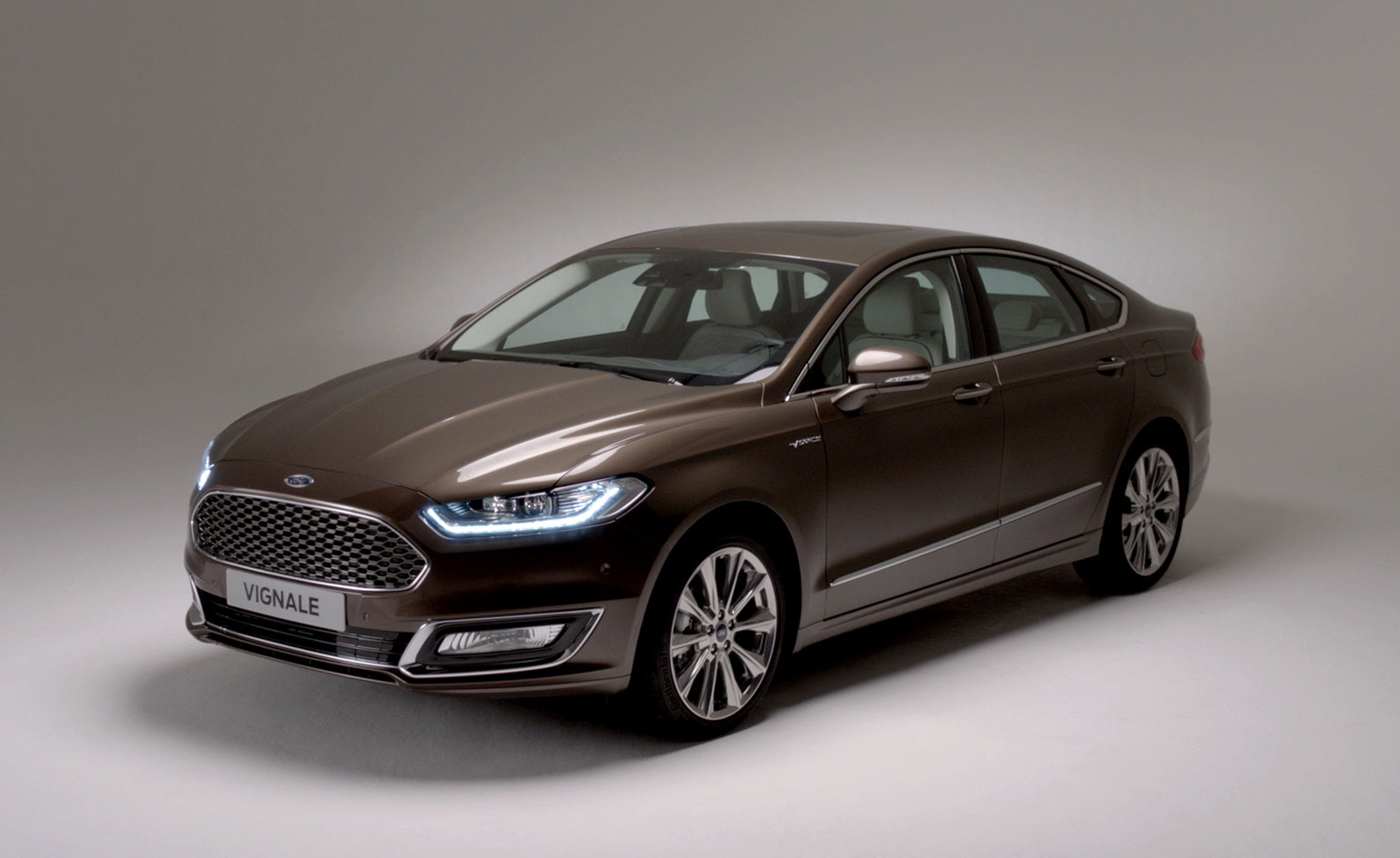 Flash from the past: Ford Mondeo and S-Max get the Vignale design treatment
Flash from the past: Ford Mondeo and S-Max get the Vignale design treatmentBy Nargess Banks
-
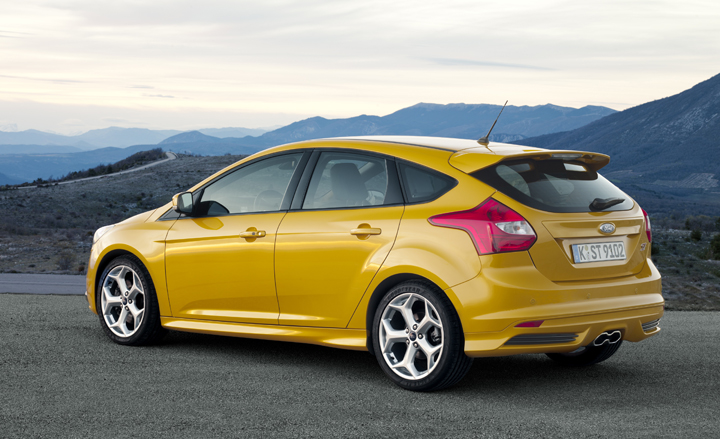 Ford Focus ST
Ford Focus STBy Jonathan Bell